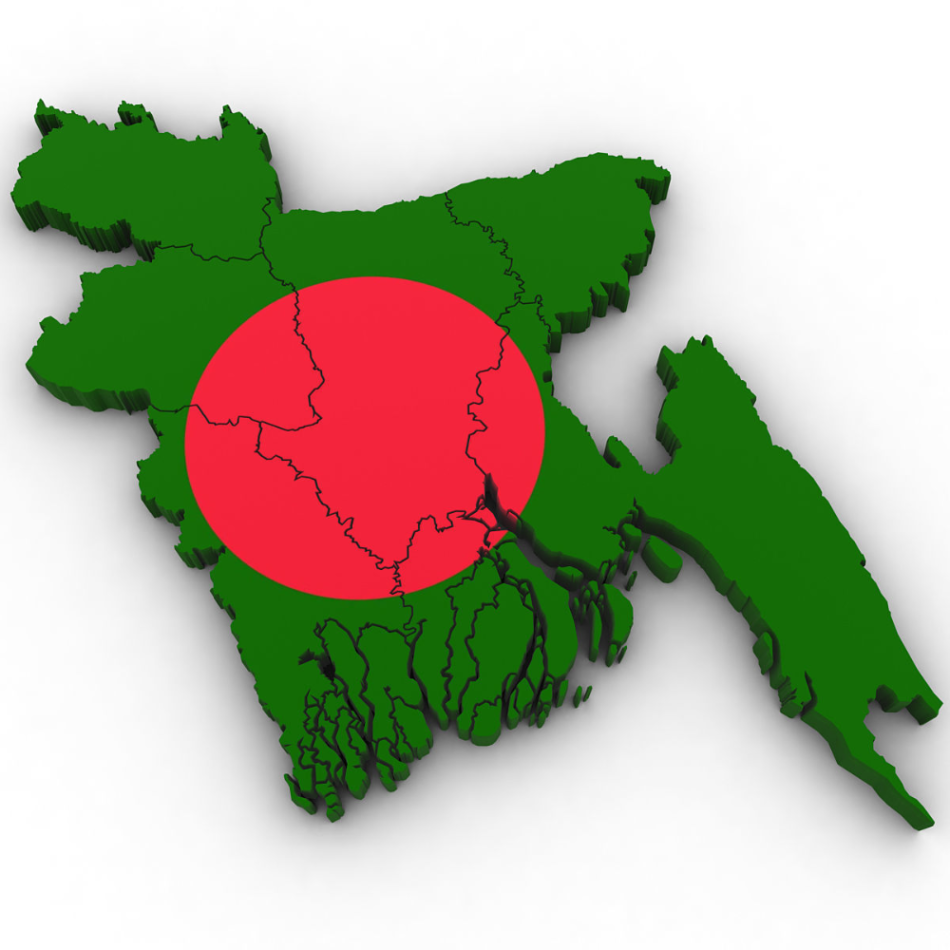The world is fast changing. International relations has become much more complex and multidimensional than any time in history. There has been a power transition process in place at regional and global levels over the past two decades. Bangladesh and its neighboring region have witnessed fundamental shifts in strategic and foreign policy priorities of regional and extra-regional powers. Against such backdrops, it is pertinent to assess new challenges and options for Bangladesh in the complexed global scenarios.
Changing Global Scenario
The ongoing Ukraine war, Rohingya crisis, border clashes between India and China (Doklam and Galwan Valley), and the withdrawal of the United States troops from Afghanistan are some of the fallouts arising from the evolving situations. The underlying cause behind the new developments is the growing confrontation between the US and China at strategic and diplomatic levels. The fast-changing Chinese economy and its global reach has created fundamental concerns to the US and its Western allies and India for the future of current global economic order. By mid 2010s, China dethroned the US in the league of global economic powers by gross domestic product (GDP) and in purchasing power parity (PPP). China has strongly come forward with its economic, military and cultural influence to deal with the new transition of global powers.
Major strategic instruments have emerged over the past decade to shape international relations at systemic and sub-systemic (regional) levels which include the Belt and Road Initiative (BRI), Indo-Pacific Strategy (IPS), QUAD and Australia, UK and US (AUKUS). While the Trump Administration ignited Sino-US rivalry focusing on trade war, it downplayed the Russia threat to the US. On the other hand, the Biden Administration has equally focused on China and Russia as mega threats to US hegemony.
2021 was a watershed in international relations as the US explicitly identified the China threat and reflected a strong resolve to deal with it befitting in the forums such as NATO, G-7 Summit and bilateral negotiations. The Hong Kong situations, the Taiwan strait crisis and the South China strategic conundrum have demonstrated a continuing clash between the USA and China on the question of global leadership.
Challenges for Bangladesh
Bangladesh faces a new context in recent times that has been fast changing due to new matrix of interests. The US attempt to exclude Bangladesh in the Democracy Summit and unprecedented move of sanctioning against the Bangladeshi elite force, the Rapid Action Battalion (RAB) and seven of its current and former officers is part of the changing matrix.
The US, India and China in their triangular relations have created a strategic environment in the vicinity of Bangladesh. Russia, UK and the EU are also playing their parts in this new strategic scenario. The major challenge is to avoid attempts to intervene in domestic affairs of Bangladesh by the US and its allies. The recent US move through the sanctions is creating an all-out pressure on Bangladesh. It is a test for the ruling government both within the country and beyond. Besides, the changing matrix is tarnishing the image of Bangladesh in the world and hindering the fast-growing development process of the country.
On the other hand, externally, Bangladesh is falling between the new intensity of Sino-American strategic rivalry and the growing Sino-Indian conflict. In the post-AUKUS, post-withdrawal Afghanistan environment, Bangladesh is facing the pressure of band wagoning in any direction (China vs. QUAD). With an enforced soft-power threat by the USA and its allies (for democracy, human rights and governance), the continuing Rohingya crisis and unfriendly Myanmar regime, the long-standing autonomous and balanced strategy of Bangladesh is being challenged.
Options for Bangladesh
There are three traditional strategies for dealing with global and regional scenarios whether it is hostile and friendly— Band wagoning, Balancing and Hedging.
Band wagoning is a risky option for Bangladesh given a multipolar world order and a middle size economic power. The country has avoided band wagoning successfully. It is generally followed by small powers, dependent/client states and poor economies. Bangladesh has also avoided “balancing” as it is inherently linked with great powers. The US, China and Russia can play this role globally or at a regional level. In order to avoid the pitfalls of band wagoning and balancing, some countries pursue “hedging” as a third strategy. It gives a space for engaging with more actors, particularly big powers. Bangladesh has pursued hedging in its own style.
Bangladesh has consciously and pragmatically avoided situations to be entrapped with “band wagoning” and “balancing“. The principle of “friendship to all, malice towards none” has guaranteed Bangladesh a respectable position in the world. The present strategic approach of Bangladesh which is based on independent, balanced and engaging relations with all big and middle powers needs to be followed with robust professional commitment to deal with new challenges. At the same time, the country must project its capabilities in a befitting manner. Bangladesh is a misunderstood middle power that needs to brand its achievements vigorously.
What Bangladesh needs to do is to avoid a rapid response to hegemonic shocks (US vs. China clashes) or regional or sub-regional tensions in the present Cold War like situations. There is no alternative to patience and pragmatism in the foreign policy arena. New vigilance should be increased against the nexus of domestic and foreign enemies to create further instability in the strategic hotspots in Bangladesh – the CHT, the Rohingya camps and the Cox’s Bazar region. Continuous revisiting and reexamining of bilateral relations with the US, India, Russia and China is a must as they are the key actors in global politics. Besides, Bangladesh should continuously promote multilateralism with the leadership in the areas of humanitarianism, climate change, blue economy and SDGs. And finally, it has to maintain resilience, coordination and unity within the decision-making structure of the government.
*Nazifa Nawar is a researcher and columnist based in Dhaka, Bangladesh.
May 25, 2022
The viewpoints expressed by the authors do not necessarily reflect the opinions, viewpoints and editorial policies of Aequitas Review.


